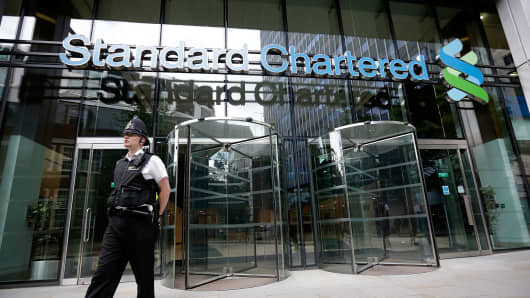Standard Chartered is preparing a swift boardroom shake-up amid mounting pressure from investors over its handling of allegations that it hid details of transactions with Iran totalling $250 billion, the Financial Times reports.
The overhaul, expected in the next few months, is intended to strengthen the bank’s circle of non-executive directors, more than half of whom were appointed several years before the start of the financial crisis.
A number of leading shareholders have accused StanChart of a lack of oversight after it was caught off-guard by claims from the New York state Department of Financial Services that it falsified records of its dealings with Iran.
“A big issue is the failure of oversight, which means Standard Chartered needs to act over the make-up of the board,” said one top 20 shareholder. “They may need to act quickly over this to prevent a loss of credibility.”
StanChart has admitted it was blindsided by the allegations, which were made as it worked towards a joint settlement with four other US regulators.
Peter Sands, chief executive, and Richard Meddings, finance director, have been criticised by investors for failing to spot risks in the bank’s dealings with Iran. Their positions, however, are not thought to be under threat.
“Questions are being asked about how [the claims] came as such a shock,” said someone close to StanChart.
The bank paid $340 million to the New York regulator this week after investors made clear they wanted a quick settlement.
The move triggered a rally in the bank’s shares, which have jumped more than 7 per cent this week to £14.24. They are still trading significantly lower than before the DFS published its allegations on August 6.
Shareholders have now turned their attention to StanChart’s board, raising particular worries over Rudy Markham, senior independent director, who has held a position for more than 11 years.
Guidelines set out by Derek Higgs in his 2003 government-sponsored review of non-executive directors state that a tenure of more than 10 years raises concerns about independence. Another five of StanChart’s 10 non-executive directors were appointed between 2003 and 2005.
Criticism has also been directed at Sir John Peace, StanChart’s chairman. One top 20 investor said he feared Sir John had “taken his eye off the ball” because of commitments elsewhere.
Sir John chairs two other FTSE 100 companies: Burberry, the fashion designer, and Experian, the credit services provider. “Sir John needs to concentrate on his role at Standard Chartered,” said the shareholder. “That could mean giving up other commitments.”
The bank was already planning to strengthen its board before the New York regulator published its claims to address issues around length of tenure. These changes will now take place sooner than expected, say people close to the company.
Earlier this year Temasek, the Singapore sovereign wealth fund that holds an 18 per cent stake, withheld support for the re-election of all executive directors except Mr Sands and two non-executives.
People familiar with the situation said its stance reflected broader concern about the structure of the board rather than any specific anxiety about individuals.


